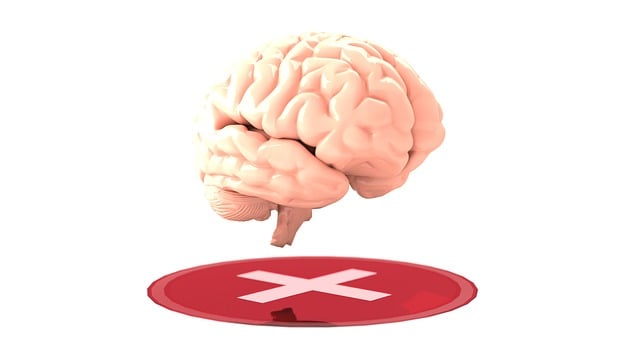Denver Stress Management Therapy (DSMT) offers specialized support for individuals navigating loss, grief, and bereavement. Through cultural competency training, mindfulness meditation practices, and tailored interventions, DSMT helps clients process complex emotions, develop coping strategies, and foster inner strength. Early intervention, safe spaces, and trauma support empower individuals to heal from profound loss, transforming pain into personal growth and enhancing emotional well-being.
Loss, grief, and bereavement are universal experiences that can profoundly impact an individual’s well-being. This article delves into these complex emotions, offering a sensitized approach to understanding them. We explore the role of Denver Stress Management Therapy in mitigating pain associated with loss. From recognizing signs indicating the need for professional help to examining therapeutic techniques and long-term benefits, this guide empowers individuals navigating their journey towards healing.
- Understanding Loss, Grief, and Bereavement: A Sensitized Approach
- The Role of Denver Stress Management Therapy in Mitigating Pain
- Recognizing the Signs: Identifying When You Need Professional Help
- Therapeutic Techniques for Healing: From Support to Strategies
- Empowering Individuals Through Recovery: Long-term Benefits and Success Stories
Understanding Loss, Grief, and Bereavement: A Sensitized Approach

Understanding loss, grief, and bereavement is a nuanced process that requires sensitivity and expertise. These complex emotional experiences are deeply personal, often triggered by significant life changes or profound losses. In Denver Stress Management Therapy, professionals are trained to navigate these sensitive topics with care, recognizing that each individual’s journey through grief is unique.
The process of grieving involves a range of emotions, from sadness and anger to denial and acceptance. It is not a linear path, but rather a tapestry of experiences that can be influenced by cultural background, personal beliefs, and coping mechanisms. Healthcare providers with cultural competency training are better equipped to offer support tailored to diverse populations. Additionally, incorporating practices like mindfulness meditation can enhance mental wellness during this challenging period, helping individuals find moments of peace and self-compassion amidst their sorrow.
The Role of Denver Stress Management Therapy in Mitigating Pain

Denver Stress Management Therapy (DSMT) offers a unique and effective approach to mitigating loss grief and bereavement-related pain. This therapeutic technique focuses on empowering individuals to manage their stress and anxiety, which are often significant contributors to emotional turmoil during difficult times. By utilizing DSMT, those grappling with the loss of a loved one can find solace in learning powerful emotional healing processes that foster inner strength development.
Through this therapy, individuals gain valuable tools to navigate the complex landscape of grief, allowing them to process their emotions healthily and develop coping mechanisms for long-term resilience. The methodical approach of DSMT helps clients understand and regulate their stress responses, thereby reducing anxiety and promoting a sense of calm during what can be an intensely challenging period. This form of counseling is a game-changer, offering a supportive space to transform pain into personal growth and enhanced emotional well-being.
Recognizing the Signs: Identifying When You Need Professional Help

Many people experience loss, grief, and bereavement at some point in their lives, but it’s essential to recognize when these feelings become overwhelming. While it’s normal to feel sad, angry, or confused after a significant loss, prolonged or intense emotions may indicate a need for professional help. In Denver, stress management therapy centers offer specialized support for individuals navigating these complex emotions.
If you’re questioning whether you need counseling, pay attention to persistent feelings of despair, isolation, or difficulty carrying out daily tasks. A risk assessment for mental health professionals can guide crisis intervention strategies and resilience-building techniques, ensuring individuals receive the appropriate care. Seeking help early on can make a significant difference in managing grief and fostering healing.
Therapeutic Techniques for Healing: From Support to Strategies

Healing from loss is a deeply personal journey, and therapists employ various techniques to support individuals through grief and bereavement. One effective method is offering a safe, non-judgmental space for clients to express their emotions freely, fostering open communication. This supportive environment encourages the exploration of feelings, allowing individuals to process their sorrow, anger, or guilt—emotions often associated with loss.
Additionally, therapists may guide clients in cultivating mindfulness meditation practices, helping them stay present and develop inner strength. By focusing on the here and now, individuals can learn to accept their emotions without judgment, fostering resilience. Trauma support services are also integral, providing tools to manage stress and offering strategies for coping with profound loss. These techniques empower individuals to navigate their grief journey with increased adaptability and emotional well-being, ultimately supporting a path towards healing in Denver Stress Management Therapy.
Empowering Individuals Through Recovery: Long-term Benefits and Success Stories

Through loss grief and bereavement counseling, individuals can find a path to empowering recovery that offers long-term benefits. This process goes beyond mere coping mechanisms; it equips people with tools to navigate life’s challenges, fostering mental wellness and resilience. Success stories within Denver stress management therapy highlight the profound impact of empathetic support, tailored interventions, and innovative techniques such as cultural competency training for healthcare providers. These approaches not only address the immediate pain but also help individuals rebuild their lives with renewed purpose and a deeper understanding of themselves.
The journey towards recovery is further enhanced by practices like empathy building strategies and mental wellness journaling exercises. Healthcare provider training in cultural competency ensures that every patient receives care that respects their unique background and experiences, fostering trust and openness. Empathy, coupled with practical guidance, allows individuals to process grief in a safe space, leading to profound personal growth. These strategies collectively contribute to the overall success of bereavement counseling, transforming struggle into hope and healing.
In addressing loss, grief, and bereavement, Denver Stress Management Therapy offers a compassionate and effective approach. Throughout this article, we’ve explored the nuanced aspects of understanding and healing from these profound experiences, highlighting the importance of professional support when needed. From recognizing signs to therapeutic techniques, it’s evident that Denver Stress Management Therapy empowers individuals on their path to recovery. By delving into these strategies, individuals can navigate their grief, find solace, and ultimately, emerge with enhanced resilience.










